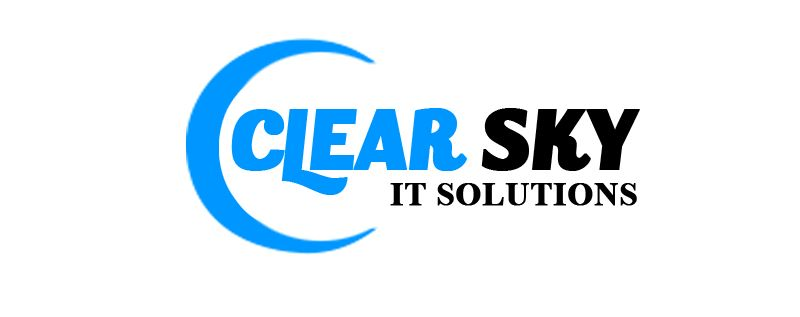Hellstar addresses supply chain challenges through a multi-faceted approach that focuses on flexibility, collaboration, and technology integration. Here are some key strategies they might implement:
1. **Diversified Sourcing**: By diversifying their supplier base, Hellstar can mitigate risks associated with relying on a single source. This ensures that if one supplier faces disruptions, alternate options are available.
2. **Technology Integration**: Utilizing advanced technologies such as data analytics, AI, and blockchain helps Hellstar gain better visibility into their supply chain. This allows for real-time tracking of inventory and shipments, as well as predictive analytics to foresee and address potential disruptions.
3. **Collaboration with Partners**: Building strong relationships with suppliers and logistics providers fosters better communication and collaboration. By working closely with partners, Hellstar can respond more effectively to changes in demand or supply disruptions.
4. **Inventory Management**: Implementing just-in-time inventory practices along with safety stock levels helps in maintaining a balance between supply and demand. This ensures that they can meet customer needs without overstocking.
5. **Risk Assessment and Management**: Regularly assessing and managing risks within the supply chain allows Hellstar to identify vulnerabilities and develop contingency plans. This proactive approach can minimize the impact of unforeseen challenges.
6. **Agility and Flexibility**: A supply chain that is agile and adaptable can respond quickly to changes in market conditions or consumer preferences. Hellstar may focus on flexible processes and systems that allow for swift adjustments in operations.
By employing these strategies, Hellstar can navigate supply chain challenges effectively, ensuring continuity of operations and customer satisfaction.
Understanding Supply Chain Challenges
Understanding hellstrshop.com Supply Chain Challenges
Supply chain challenges are complex and multifaceted, impacting businesses of all sizes and sectors. For a company like Hellstar, which operates within a competitive industry, recognizing and navigating these challenges is crucial for maintaining operational efficiency and customer satisfaction.
At the core of supply chain challenges lies the interconnectedness of various components—sourcing raw materials, production processes, distribution networks, and delivery systems. Issues can arise at any stage, affecting overall performance and profitability. Factors such as global demand fluctuations, supplier reliability, transportation bottlenecks, and regulatory changes can create disruptions that ripple through the entire supply chain.
For Hellstar, understanding these challenges begins with comprehensive awareness of the external environment. This includes keeping abreast of geopolitical factors that might impact sourcing or tariffs that could affect material costs. Weather events, for instance, can disrupt transportation routes, impacting delivery timelines and inventory levels.
Another significant aspect of supply chain challenges is the need for effective communication and collaboration with suppliers and logistics partners. Establishing strong relationships enhances transparency and enables quicker responses to potential issues. Hellstar might implement strategies such as sharing real-time data with partners to ensure everyone is aligned and can adapt swiftly to unanticipated changes.
Additionally, technology plays a pivotal role in navigating supply chain challenges. Advanced forecasting tools and inventory management systems allow Hellstar to predict demand more accurately, optimize stock levels, and reduce excess inventory, ultimately minimizing waste and cost. Automation in warehousing and logistics processes can further enhance efficiency and accuracy, allowing the company to respond dynamically to supply chain disruptions.
Finally, a proactive approach to risk management is essential. Hellstar may develop contingency plans that outline alternative sourcing options or logistics paths to quickly pivot in the face of challenges. Regularly revisiting and updating these plans in light of changing market conditions ensures that the company remains resilient and adaptable.
In summary, understanding supply chain challenges requires a holistic view of the interconnected components that drive a business’s operations. By leveraging technology, fostering collaboration, and planning for contingencies, Hellstar can navigate these complexities effectively, enabling continued growth and customer satisfaction in an unpredictable landscape.
Utilizing Technology and Innovation
Supply chain challenges are an intrinsic part of any business operation, and Hellstar is no exception. Understanding these challenges is crucial to effectively addressing them and ensuring smooth operation within their supply chain.
At its core, supply chain challenges can stem from various factors, including demand fluctuations, logistical issues, supplier reliability, and global economic conditions. For Hellstar, clarifying their supply chain dynamics means recognizing how each of these elements impacts their ability to deliver products and services efficiently.
One major challenge can arise from demand variability; if customer orders exceed the forecasted estimates, Hellstar may struggle to maintain adequate inventory levels. Conversely, overestimating demand can lead to excess inventory, tying up valuable capital and storage resources. To mitigate this, Hellstar employs advanced analytics and forecasting tools to better predict demand trends and adjust their supply strategies accordingly.
Another challenge often faced in supply chain operations is logistics and transportation. Delays caused by unforeseen events—whether they be natural disasters, labor strikes, or transportation bottlenecks—can disrupt the flow of goods and materials. Hellstar addresses this by establishing strong relationships with multiple logistics partners and maintaining flexibility in their transportation strategies. Having alternative routes and carriers ensures that they can adapt swiftly to disruptions, minimizing downtime.
Supplier reliability is also a critical issue in supply chain management. Dependable suppliers are essential for consistent product quality and delivery timelines. Hellstar invests time in evaluating and establishing relationships with its suppliers, ensuring they meet quality standards and can operate consistently under varying conditions. This resilience allows Hellstar to maintain operational continuity even when specific suppliers face challenges.
Finally, external economic factors—from trade tariffs to shifts in global market dynamics—can pose significant supply chain risks. Hellstar keeps a pulse on these changes to remain agile, adjusting their sourcing and operations to align with evolving market conditions. This proactive approach not only helps them minimize potential disruptions but also allows for strategic opportunities in sourcing materials or negotiating prices.
In summary, understanding supply chain challenges encompasses recognizing and analyzing various factors that impact efficiency and reliability. Hellstar embraces these challenges with a strategic mindset, employing data-driven solutions, fostering strong supplier relationships, and maintaining agility in logistics, enabling them to navigate the complexities of the supply chain effectively.
